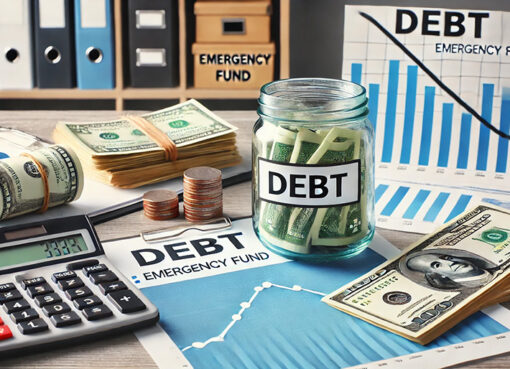Effective Strategies for Reducing and Eliminating Debt Quickly

Strategies for Reducing and Eliminating Debt
Strategies for Reducing and Eliminating Debt. Debt can feel overwhelming, but with the right strategies, it’s possible to regain control of your finances and work toward a debt-free future. This article explores practical steps and proven methods to reduce and eliminate debt effectively, empowering you to achieve financial freedom.
Understand Your Debt Situation
The first step to reducing debt is gaining a clear understanding of your financial obligations. Start by:
- Listing all debts, including amounts, interest rates, and monthly payments.
- Differentiating between high-interest (credit card) and low-interest (student loans) debts.
- Identifying minimum payments to avoid late fees and penalties.
This comprehensive overview provides a foundation for building your debt repayment plan.
Create a Realistic Budget
A budget is a powerful tool for managing finances and freeing up funds for debt repayment. Key steps to budget creation include:
- Track Income and Expenses: Determine your monthly cash flow by listing all income sources and fixed/variable expenses.
- Cut Unnecessary Spending: Eliminate or reduce discretionary spending on non-essential items like dining out or entertainment.
- Prioritize Debt Payments: Allocate a significant portion of your income toward debt repayment while covering basic needs.
Using budgeting tools or apps can streamline this process and help you stay accountable.
Focus on High-Interest Debt First
Tackling high-interest debt should be a top priority as it accumulates faster over time. Consider these repayment strategies:
- Debt Avalanche Method: Pay off debts with the highest interest rates first while making minimum payments on others.
- Debt Snowball Method: Start with the smallest debt for a quick win and build momentum as you tackle larger debts.
Both methods are effective, so choose the one that aligns with your financial goals and personality.
Consolidate Your Debts
Debt consolidation combines multiple debts into a single loan with a lower interest rate, simplifying payments and potentially reducing overall interest. Options include:
- Personal loans
- Balance transfer credit cards
- Home equity loans
While consolidation can make debt management easier, it’s essential to avoid accumulating new debt during the process.
Boost Your Income
Increasing your income can accelerate debt repayment. Consider:
- Taking on a part-time job or freelance work.
- Selling unused items online.
- Pursuing a side hustle aligned with your skills or interests.
Directing additional income exclusively toward debt can significantly reduce repayment time.
Negotiate with Creditors
Creditors may be willing to adjust terms if you’re struggling to meet payments. Options include:
- Requesting lower interest rates.
- Setting up a temporary payment plan.
- Exploring debt settlement options for a reduced lump-sum payment.
Approach negotiations honestly and with a clear understanding of your financial situation.
Avoid New Debt
Minimizing new debt is critical while working to reduce existing obligations. Strategies to avoid additional debt include:
- Using cash or debit cards instead of credit.
- Building an emergency fund to cover unexpected expenses.
- Avoiding temptations to finance non-essential purchases.
Staying disciplined helps prevent setbacks on your journey to debt freedom.
Leverage Financial Tools and Resources
Financial tools and resources can simplify debt reduction. Consider:
- Debt Payoff Calculators: Estimate how quickly you can pay off debt with varying payment amounts.
- Budgeting Apps: Automate expense tracking and budgeting for consistent progress.
- Credit Counseling Services: Seek professional guidance for personalized debt management plans.
Build an Emergency Fund
Unexpected expenses can derail debt repayment plans. Establishing an emergency fund provides a financial safety net, ensuring you won’t rely on credit during emergencies. Aim to save at least three months’ worth of expenses.
The Psychological Impact of Debt Reduction
Debt isn’t just a financial burden—it also affects mental health. Address the psychological aspects of debt reduction by:
- Setting achievable goals to maintain motivation.
- Celebrating small victories, such as paying off a single account.
- Seeking support from friends, family, or financial counselors.
Maintaining a positive mindset is essential for staying committed to your financial goals.
When to Seek Professional Help
If debt feels unmanageable, consider consulting a financial advisor or debt relief agency. They can:
- Negotiate better repayment terms with creditors.
- Create a tailored plan to address your specific challenges.
- Offer education on financial habits to prevent future debt issues.
Achieving Financial Freedom
Reducing and eliminating debt is only the first step toward financial freedom. To maintain long-term financial stability:
- Continue Budgeting: Regularly review and adjust your budget to reflect changing circumstances.
- Invest in Your Future: Direct freed-up funds toward savings, retirement accounts, or other financial goals.
- Live Below Your Means: Adopt a frugal lifestyle to avoid falling back into debt.
Conclusion
Reducing and eliminating debt is a challenging but rewarding process that leads to greater financial independence and peace of mind. By implementing these strategies—budgeting, prioritizing high-interest debts, consolidating loans, and seeking professional help—you can take control of your financial situation and pave the way toward a debt-free future.
Commit to these actionable steps today and start building the foundation for lasting financial freedom.
How To Get A Personal Loan Fast?




